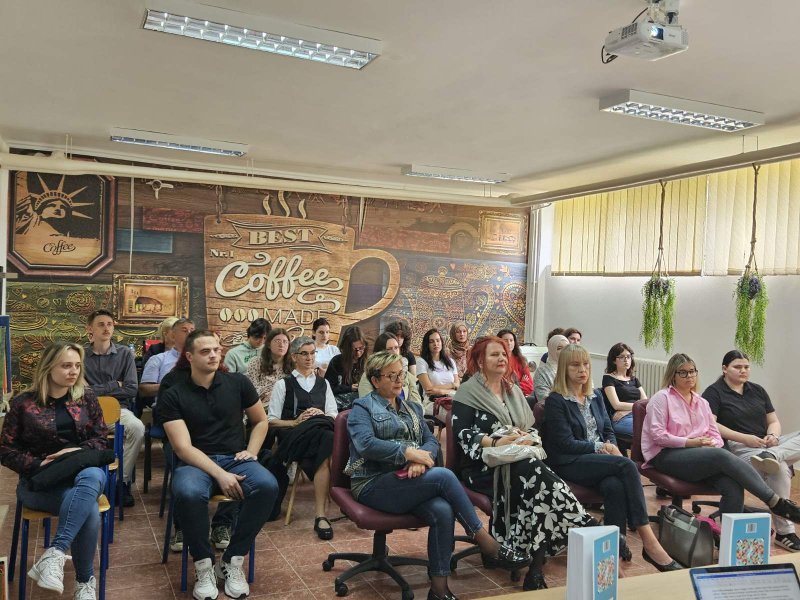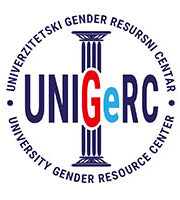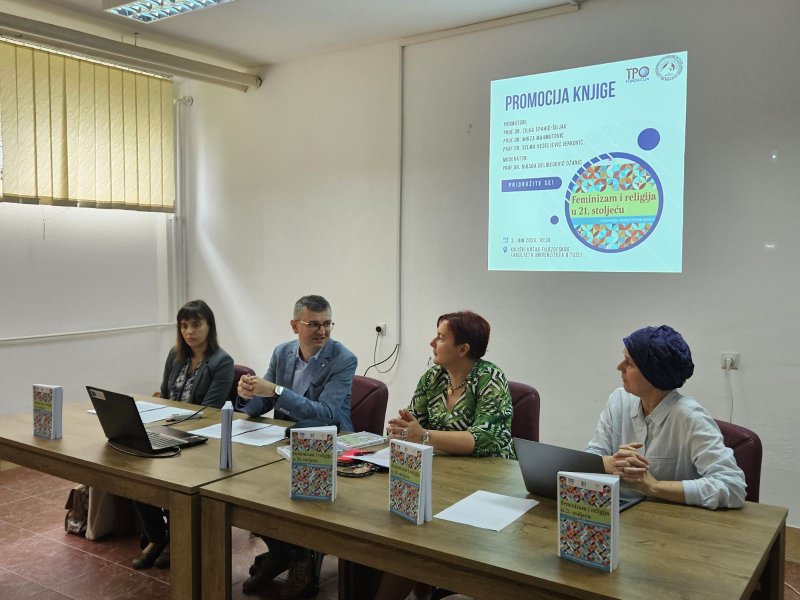As part of the UNIGEM project at the Faculty of Philosophy, University of Tuzla, on June 3, 2024, a book promotion was held for “Feminism and Religion in the 21st Century: Technology, Dialogue, and Expanding Boundaries,” edited by Gina Messina Dysert and Rosemary Radford Reuther. The promoters were Prof. Dr. Mirza Mahmutović, Prof. Dr. Selma Veseljevic Jerković, and Prof. Dr. Zilka Spahić Šiljak, moderated by Prof. Dr. Nihad Džanić Delibegović.
Professor Mahmutović presented the book with a brief review of the topics covered in the 16 essays that bring the experiences of American Christian women of various denominations as well as Jewish and Muslim women. He highlighted the importance of social media in articulating the needs of women who do not have space in mainstream communities and churches.
Prof. Dr. Zilka Spahić Šiljak spoke about how social media embodies feminist values, how it eliminates hierarchies, and how personal experiences give women the opportunity to connect with other women. If feminism is about the social transformation of gender relations and patriarchy through a set of progressive, emancipatory, and liberating ideologies, then the virtual space is an alternative to closed hierarchical communities. She emphasized the importance of feminist pedagogy as a set of strategies and practices that critically question the content, methods, and processes of knowledge production and mediation. The feminist dimension of social media is reflected in the multiple revolutions and evolutions taking place in the virtual world, enabling women, minorities, and all those excluded to create their own spaces for knowledge creation, experience exchange, and empowerment.
Professor Selma Veseljević Jerković spoke about how women and men use the internet almost equally, but women spend more time in the online space. She particularly reflected on the chapter about connecting women through researching family heritage with their ancestors and the community. This is a kind of spiritual journey with ethical dimensions. She then elaborated on the issue of gaming, which allows for multiple embodiments, without gender and other identities, as in the game Oblivion. There are no boundaries, as participants can create their own mods, avatars, and more. It is an interspace with fairly fluid identities. Since such games are not hyper-masculine and hyper-sexualized, they offer women potential for subversive action.




